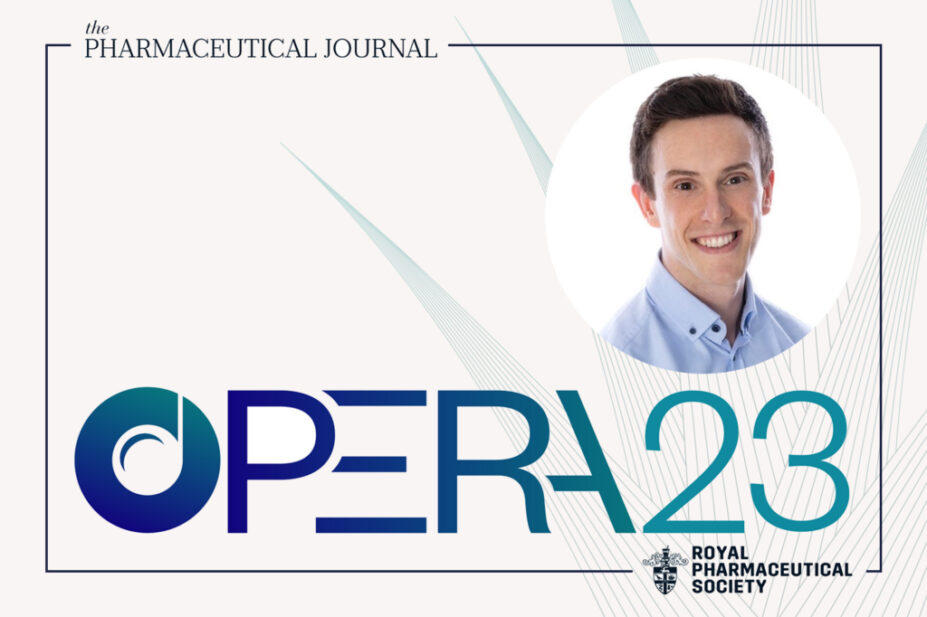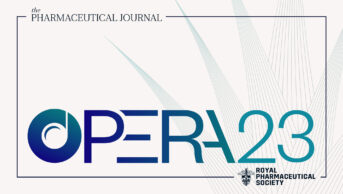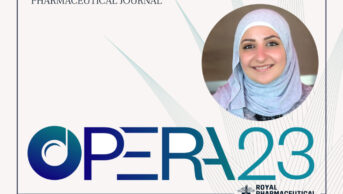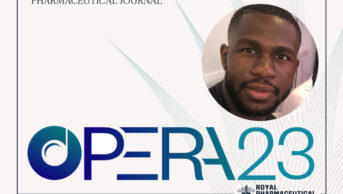
Stephen Kelly says he has always been captivated with microbiology and the interplay between microbes and human health.
“It’s always fascinated me how microbes and the genes that they carry can determine the effects they have in our bodies, essentially creating compounds that can lead to disease progression, conditions like obesity and diabetes, as well affecting mental health,” he says.
With the explosion of DNA sequencing, the microbiome is also a much more accessible area of research, capable of producing huge amounts of new knowledge, with the potential to solve some of the biggest challenges facing healthcare.
Stephen joined the Pharmaceutical Society of Northern Ireland register as a pharmacist in 2012, beginning his career as a community pharmacist, before working as a hospital pharmacist for the Southern Health and Social Care Trust in Northern Ireland.
In September 2014, he began his PhD in pharmaceutical biotechnology at Queen’s University Belfast. Following completion of his PhD in 2018, Stephen was appointed to a Wellcome Trust funded postdoctoral research fellow position at the School of Pharmacy at Queen’s University Belfast. He is now a lecturer of pharmaceutical microbiomics at the same institution and leads a research group as principle investigator, focusing on the effect of the clinical environmental and human microbiome on healthcare outcomes.
Stephen’s research has always geared towards directly impacting practice and improving how pharmacy can contribute to positive health outcomes, such as his work to interrogate extreme environments to find enzymes for pharmaceutical production, using novel drug delivery strategies to deliver antibiotics to treat infection, or profiling the microbiome of various clinical niches.
Stephen’s PhD yielded several novel biocatalytic enzymes, which can perform chemical transformations to produce drug molecules in a more inexpensive and environmentally friendly way than conventional chemical approaches. Several of these enzymes have since been added to a pharmaceutical company’s biocatalytic toolbox.
During his postdoctoral studies, Stephen’s research focused on the use of a novel transdermal drug delivery system for antibiotic administration. This study has potentially huge implications for professional practice, both in terms of the ability for infection treatment by a patient-convenient transdermal delivery route, and in its potential to ameliorate the emergence of antimicrobial resistance by bypassing the gut microbiota.
Stephen’s research is currently centred on microbiome analysis. His work investigating the patient-facing wastewater microbiome following infection outbreak in a hospital has helped to inform infection control policies.
Managing the transition from clinical pharmacy to a researching bioinformatician has required Stephen to develop an extensive range of technical skills. “I’m a pharmacist by trade, and you’re not taught a lot of bioinformatics as part of your undergraduate training” he says.
“I’m very motivated to be able to develop difficult technical skills in an area like DNA sequencing that can contribute in such a meaningful way to improving healthcare outcomes and answer really important research questions.”
Panel comments
“This is a very impressive submission. The gut microbiome is emerging as a critical field of research and, when coupled with the need to reduce/contain antibiotic prescribing to prevent resistance, this research has the potential for huge impact, not just within the applicant’s current areas of practice but globally.”
“Novel approaches to administering antibiotics using a drug delivery system likely to minimise antimicrobial resistance development could have major impact. Other work already added to pharma toolbox. Now an independent principle investigator with own group. Involved in teaching and outreach to schools. Impressive international collaborations and working beyond pharmacy boundaries.
“Very strong application. Potential for future impact is very high.”
Publications
Kiernan MG, Dunne SS, McDermott K et al. Mesenteric microbiology and inflammatory bowel disease: Improved understanding due to accelerating innovation and sophistication of molecular technology. In: The Mesentery and Inflammation, (Ed. Coffey, J.C.), Springer Cham. doi: 10.1007/978-3-031-17774-3_7
Thompson TP, Megaw J, Kelly SA et al. Microbial communities of halite deposits and other hypersaline environments. Adv Appl Microbiol 2022;120:1-32. doi: 10.1016/bs.aambs.2022.06.001
Rice CJ, Kelly SA, O’Brien SC et al. Novel phage-derived depolymerase inhibits biofilm formation of Proteus mirabilis. Microorganisms 2021;9(10):2172. doi: 10.3390/microorganisms9102172
Kelly SA, Nzakizwanayo J, Rodgers AM et al. Antibiotic therapy and the gut microbiome: Investigating the effect of delivery route on gut pathogens. ACS Infectious Diseases 2021;7(5):1283-1296. doi: 10.1021/acsinfecdis.1c00081
Thompson TP, Kelly SA, Skvortsov T et al. Microbiology of a NaCl stalactite ‘salticle’ formed within Triassic halite. Environmental Microbiology 2021;23(7):3881-3895. doi: 10.1111/1462-2920.15524
McAlister E, Dutton B, Vora LK et al. Directly compressed tablets: A novel drug-containing reservoir combined with hydrogel-forming microneedle arrays for transdermal drug delivery. Advanced Healthcare Materials 2020;10: 2001256. doi: 10.1002/adhm.202001256
McLaughlin M, Gilea MA, Earle MJ et al. Characterization of ionic liquid cytotoxicity mechanisms in human keratinocytes compared with conventional biocides. Chemosphere 2020;270:129432. doi: 10.1016/j.chemosphere.2020.129432
Alshraiedeh NH, Kelly SA, Thompson TP et al. Extracellular Polymeric Substance-mediated tolerance of Pseudomonas aeruginosa Biofilms to Atmospheric Pressure Non-Thermal Plasma treatment. Plasma Polymers and Processes 2020;17:2000108. doi: 10.1002/ppap.202000108
Tether A, Laverty G, Puga AV et al. High-throughput toxicity screening of novel azepanium and 3-methylpiperidinium ionic liquids. RSC Advances 2020;10(39):22864-22870. doi: 10.1039/d0ra03107k
Kelly et al. Chapter 23: Aldehydes. In: McDonnell, G., Hansen, J. eds. Block’s Disinfection, Sterilization, and Preservation. Sixth Edition. Wolters Kluwer. 2020.
Kelly SA, Rodgers AM, O’Brien SC et al. Gut check time: antibiotic delivery strategies to reduce antimicrobial resistance. Trends in Biotechnology 2020;38(4):447-462. doi: 10.1016/j.tibtech.2019.10.008
Kelly SA, Mix S, Moody TS et al. Transaminases for industrial biocatalysis: novel enzyme discovery. Applied Microbiology and Biotechnology 2019;104(11):4781-4794. doi: 10.1007/s00253-020-10585-0
Megaw J, Kelly SA, Thompson TP et al. Profiling the microbial community of a Triassic halite deposit in Northern Ireland: an environment with significant potential for biodiscovery. FEMS Microbiology Letters 2019;366:22. doi: 10.1093/femsle/fnz242
Kelly SA, Moody TS & Gilmore BF. Biocatalysis in seawater: investigating a halotolerant ω‐transaminase capable of converting furfural in a seawater reaction medium. Engineering in Life Sciences 2019; 19(10):721–725. doi: 10.1002/elsc.201900053
Kelly SA, Magill DJ, Megaw J et al. Characterisation of a solvent-tolerant haloarchaeal (R)-selective transaminase isolated from a Triassic period salt mine. Appl Microbiol Biotechnol 2019;103;5727–5737. doi: 10.1007/s00253-019-09806-y
Kelly SA, Skvortsov T, Magill D et al. Characterization of a novel ω-transaminase from a Triassic salt mine metagenome. Biochemical and Biophysical Research Communications 2018;503(4):2936-2942. doi: 10.1016/j.bbrc.2018.08.073
Kelly SA, Megaw J & Gilmore BF. Draft genome sequence of Salinisphaera sp. strain KSM-18, an obligately halophilic bacterium isolated from a Triassic salt mine. Microbiology Resource Announcements 2018;7(6):e00897-18. doi: 10.1128/MRA.00897-18
Kelly SA, Pohle S, Wharry S et al. Application of ω-transaminases in the pharmaceutical industry. Chemical Reviews 2018;118(1):349-367. doi: 10.1021/acs.chemrev.7b00437
Kelly SA, Megaw J, Caswell J et al. (2017). Isolation and characterisation of a halotolerant ω-transaminase from a Triassic period salt mine and its application to biocatalysis. Chemistry Select 2017;2:9783-9791. doi: 10.1002/slct.201701642
You may also be interested in

The 2023 ‘Outstanding Pharmacy Early-career Researcher Award’ judging process

Atheer Awad
